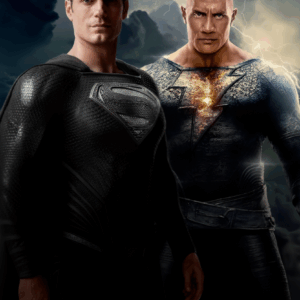Disney’s live-action Snow White, released on March 21, 2025, has become a lightning rod for controversy, not only for its commercial failure but also for the polarizing statements of its star, Rachel Zegler. The film, which aimed to reimagine the 1937 animated classic with a modern feminist lens, has been widely criticized, earning a dismal 1.6/10 on IMDb and grossing just $168 million against a $240–270 million budget—a $115 million loss for Disney. At the heart of the debate is Zegler herself, whose outspoken views on the original Snow White and her approach to feminism have drawn sharp contrasts with the professionalism of previous Disney princess actresses like Emma Watson, Lily James, and Elle Fanning. As the dust settles on this latest Disney flop, Zegler’s experience raises broader questions about the studio’s remake strategy, the evolution of its princess archetype, and the intense scrutiny faced by young actresses in Hollywood.
A Modern Take on a Classic Tale
Disney has long been celebrated for its fairytale legacy, with its animated classics shaping generations of childhoods. The 1937 Snow White and the Seven Dwarfs, the studio’s first animated feature, holds a special place in that history, its iconic imagery and romantic narrative endearing it to audiences worldwide. The live-action remake, directed by Marc Webb and starring Zegler as Snow White and Gal Gadot as the Evil Queen, sought to update this story for a contemporary audience. The film reimagined Snow White as a leader, focusing on her agency and strength rather than her romance with a prince—a shift Zegler championed during the promotional tour.
At the 2022 D23 Expo, Zegler made headlines with her candid critique of the original film. “The original cartoon came out in 1937, and very evidently so,” she said in an interview with Extra TV. “There’s a big focus on her love story with a guy who literally stalks her. Weird! Weird!” She went on to describe Snow White as a “passive” character, waiting for a prince to rescue her, and emphasized that the remake would instead highlight her journey to leadership. “She’s not going to be dreaming about true love,” Zegler told Variety. “She’s dreaming about becoming the leader she knows she can be.” These statements, intended to underscore the film’s feminist perspective, instead ignited a firestorm of backlash, with many fans accusing Zegler of disrespecting a beloved classic.

A Contrast with Disney Princess Predecessors
Zegler’s approach stands in stark contrast to that of previous Disney princess actresses, whose professionalism and reverence for their roles earned them widespread praise. Emma Watson, who played Belle in the 2017 live-action Beauty and the Beast, exemplified this during her press tour. In a promotional video released by Disney, Watson spoke warmly of her lifelong admiration for Belle, describing her as a role model from childhood to adulthood. “Belle was always my favorite,” Watson said, her words resonating with fans who shared that connection. The film went on to gross over $1.2 billion worldwide, a testament to its broad appeal.
Similarly, Lily James, who portrayed Cinderella in the 2015 live-action remake, expressed genuine joy at the opportunity. In a behind-the-scenes interview, James called the role “a dream come true,” adding, “Every little girl dreams of being a princess. Even now, it feels so surreal.” Her enthusiasm helped Cinderella earn $543 million globally, cementing its success. Elle Fanning, who played Aurora in 2014’s Maleficent, offered a nuanced take on feminism that further highlighted the contrast with Zegler. In a D23 interview, Fanning pushed back against the idea that all Disney princesses must be “strong” in a stereotypical sense, like Mulan wielding a sword. “Aurora is resilient in her own way,” Fanning said. “She’s gentle and feminine, and there’s nothing wrong with her wanting to marry and have children.”
Zegler’s comments, by contrast, were perceived as dismissive. Her assertion that feminism requires a princess to be a “strong leader” rather than a romantic figure struck many as overly rigid, ignoring the diverse ways strength can manifest. Critics argued that her critique of the 1937 Snow White oversimplified its cultural context, reducing the character’s journey to passivity without acknowledging the historical significance of the film. This lack of reverence for Disney’s legacy set Zegler apart from her predecessors, whose careful navigation of their roles helped their films resonate with both new and nostalgic audiences.
The Fallout and Online Backlash
The Snow White remake’s failure cannot be attributed solely to Zegler’s comments, but they undoubtedly played a role in shaping its reception. The film faced multiple controversies: Zegler’s casting as a Latina Snow White drew racist backlash from some fans who insisted the character should have “skin as white as snow,” despite Disney’s explanation that the name “Snow White” in this version stemmed from a snowstorm her parents survived, not her complexion. The decision to replace the seven dwarfs with CGI “magical creatures,” prompted by actor Peter Dinklage’s criticism of the original portrayal, was another misstep, with audiences finding the new characters lackluster. Tensions between Zegler and Gadot over their opposing views on the Israel-Palestine conflict—Zegler’s “Free Palestine” post clashed with Gadot’s pro-Israel stance—further fueled negative press, leading to boycotts and a ban in Lebanon.
When Snow White hit theaters, it grossed just $168 million worldwide, a far cry from the billion-dollar successes of other Disney remakes. Critics panned the film, giving it a 40% score on Rotten Tomatoes, and fans review-bombed it on IMDb, driving its rating to a historic low of 1.6/10. A Mother’s Day re-release on May 11, 2025, intended to recoup losses, reportedly performed even worse, with empty theaters underscoring the film’s lack of appeal. Disney’s decision to shelve a planned live-action Tangled remake reflects the broader impact of this failure on the studio’s remake strategy.
Online, Zegler has borne the brunt of the criticism. Her comments about the original film have been endlessly debated, with many fans arguing that her “woke” perspective alienated audiences who cherished the classic love story. “She trashed a timeless fairytale to push her feminist agenda,” one user wrote on X. “No wonder the movie flopped.” Others have taken issue with her broader approach to feminism, accusing her of implying that traditional princess narratives are inherently anti-feminist. “Not every Disney princess needs to be a leader,” another commenter noted. “Romance doesn’t make a woman weak.”
A Broader Debate on Feminism and Representation
Zegler’s remarks have sparked a larger conversation about the evolution of Disney princesses and the role of feminism in their stories. Her view—that Snow White should be a leader rather than a romantic figure—reflects a broader trend in Disney’s recent remakes, which have sought to empower their heroines by emphasizing agency over romance. Films like 2019’s Aladdin and 2023’s The Little Mermaid similarly reimagined Jasmine and Ariel as more independent characters, a shift that has been both praised and criticized.
Elle Fanning’s perspective, as highlighted in the Hoa Hoc Tro article, offers a counterpoint. Fanning argued that strength doesn’t always mean rejecting traditional femininity, a nuance Zegler’s comments seemed to overlook. This tension reflects a broader debate in Hollywood: how to modernize iconic characters without alienating audiences who hold them dear. Disney’s push for “woke” remakes—emphasizing diversity and modern gender dynamics—has been a double-edged sword, appealing to younger, progressive audiences but risking backlash from traditional fans.
Zegler’s casting as a Latina Snow White also highlights the challenges of representation in Hollywood. While her selection was a win for diversity, it came with significant backlash, much of it rooted in racial bias. Similar controversies have plagued other Disney remakes, such as Halle Bailey’s casting as Ariel in The Little Mermaid, underscoring the difficulty of balancing inclusion with audience expectations. Zegler has addressed this directly, stating in 2022, “I’m Snow White—it doesn’t mean I need to bleach my skin to play the role.” Yet the persistent criticism she’s faced reveals a troubling pattern of resistance to diverse casting in iconic roles.
The Pressure on Young Actresses
Zegler’s experience also underscores the disproportionate scrutiny faced by young actresses in Hollywood. At just 23, she was thrust into the spotlight with a $270 million project, expected to navigate complex cultural debates while carrying the weight of Disney’s legacy. Her predecessors, like Watson and James, were older and more established when they took on their roles, giving them a buffer against criticism. Zegler, by contrast, was relatively new to the industry, having risen to fame with her Golden Globe-winning role in West Side Story (2021). The intense backlash—amplified by her political outspokenness, including posts about Palestine and criticism of Donald Trump—has taken a toll, with some reports suggesting Disney hired a social media expert to manage her online presence.
This scrutiny is not unique to Zegler. Young actresses of color, in particular, often face harsher criticism than their peers, a pattern seen with Bailey and others. “Hollywood loves to build up young women and then tear them down,” said film analyst Maria Torres. “Rachel’s comments were clumsy, but the level of vitriol she’s faced is disproportionate. It’s a systemic issue, not a personal failing.”
Looking Ahead
As Zegler prepares for her West End debut in Evita, set to open on June 14, 2025, at the London Palladium, she’s focused on moving forward. The role of Eva Perón, a character she’s long admired, offers a chance to return to her theatrical roots and showcase her vocal talents, which were a highlight of Snow White despite its flaws. Her recent performance in the horror-comedy Y2K, now streaming on Max, has also earned praise, suggesting she can still connect with audiences when given the right material.
For Disney, the Snow White flop is a wake-up call. The studio must reassess its approach to live-action remakes, finding a balance between innovation and nostalgia while providing better support for young stars navigating inevitable backlash. The contrast between Zegler and her predecessors highlights the delicate dance of honoring a legacy while pushing it forward—a dance Disney has yet to master in this new era of fairytales.
Zegler’s journey, though fraught with challenges, is far from over. Her willingness to speak her mind, even at the cost of controversy, reflects a boldness that may yet define her career. As she steps onto the stage in Evita, she has the chance to rewrite her narrative, proving that even a “modern” Snow White can find her place in the ever-evolving world of Disney magic.





